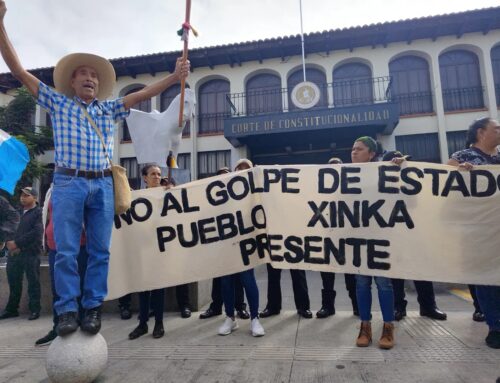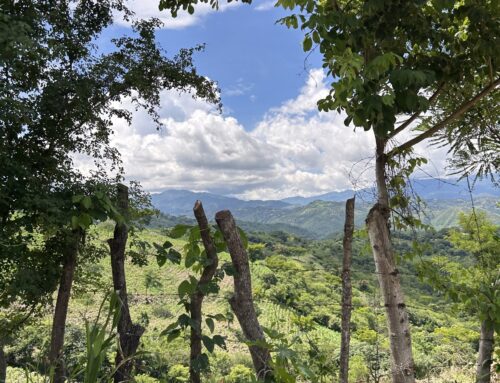On June 10th, Guatemala’s Supreme Court unanimously voted to accept Congressman Amílcar Pop’s petition to remove President Otto Pérez Molina’s immunity. Pop is accusing President Molina of playing a role in the corruption scandals in the tax and health sectors, which were recently unveiled by the UN-backed International Commission Against Impunity in Guatemala (CICIG) – revelations that have led to widespread protests throughout the country and calls for Molina’s resignation. According to the constitution, the Supreme Court was then required to turn the file over to Congress, where five members were selected at random to form an investigative commission. The President is being accused of concealment and illicit association.
Protests in the country continue, criticizing the behind-the-scenes maneuvers by powerful economic and political actors to gain control of the crisis and thus the outcome. Chants and posters frequently seen and heard at the demonstrations denounce the intervention by the U.S. Embassy, and call for respect for autonomy as people push for real, systemic change.
On June 2nd, President Molina and U.S. Ambassador Todd Robinson announced that the U.S. would provide polygraph tests for workers at the national tax agency. This announcement, together with the stark visual of Ambassador Robinson at the presidential podium with President Molina, has been seen as a strong signal of support for the embattled President, and has become a focal point in denouncing U.S. intervention in the country.
In an interview with Nómada published on June 10th, Robinson re-stated multiple times that he is “not in charge in Guatemala.” He gave this statement in response to questions about the message the public event sent at a moment when “nobody wants to be photographed with President Otto Pérez.” Robinson emphasized that the U.S. remains committed to combating corruption in Guatemala, with the billion-dollar Alliance for Prosperity at the center of its foreign policy strategy. The Ambassador revealed that the U.S. had “one word” in the resignation of Vice-president Baldetti, but maintained that it was primarily the decision of the President and the Guatemalan government. He stated that the U.S. government “is looking forward to working with
[President Pérez Molina] during the rest of his period.”
Background:
The joint CICIG / Public Prosecutor investigation into two separate corruption rings have resulted in the resignation of Vice President Roxana Baldetti and six cabinet members. So far, 42 people, including President Molina’s former personal secretary and the head of the National Bank, have been arrested. The Public Prosecutor’s office has carried out searches in three of the properties owned by former Vice President Roxana Baldetti under suspicion of illegal enrichment due to involvement in the La Linea customs scandal.





Leave A Comment